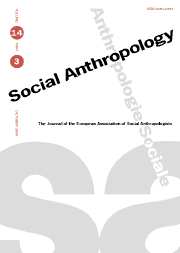Article contents
Discussion: Anthropology and citizenship
Published online by Cambridge University Press: 03 June 2005
Extract
The meaning of citizenship in any given historical period and in any nation-state resides in the way that people conceive of the relationship between themselves and the state. The nature of this relationship has historically been inextricably tied to questions of democracy and where sovereignty lies. Within the modern period, at least since the Levellers in England in the 1640s and 1650s, rival conceptions of the equality of citizens and the sovereignty of the people have been the site of moral and political conflict and, in some famous instances, revolution. Throughout the French revolution, ideas of citizenship were continually being revised and fought over. Even within the relatively narrow confines of France's Second Republic (1848–51), rival conceptions of citizenship implying quite distinct notions of civil equality and political liberty fed deep political struggles. ‘The democrats’ desire was to incorporate social equality into republican citizenship, while the socialists believed it to be inseparable from revolution in relation to capital and labour' (Furet 1995:425). Smashing the ancien régime was only the beginning of a long and bloody struggle for equality before the law.
- Type
- Research Article
- Information
- Copyright
- © Cambridge University Press 2005
- 4
- Cited by




